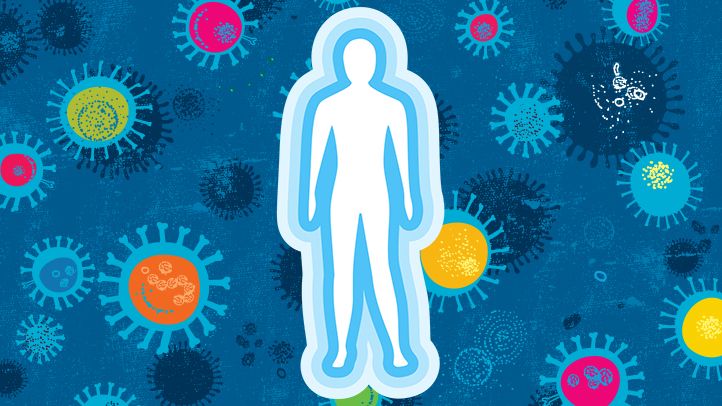Japanese seaweed (wakame) is a type of seaweed grown in Japan and Korea from a few centuries ago. It is twisted in shape, is a plant that lives in the sea or brackish water. When it is made into a soup or a salad, aside from its unique flavor, Seaweed also contains many nutrients. Seaweed benefits help improve various health conditions such as improving cardiovascular health, thyroid diseases, effective weight loss …


1. The main ingredient of Seaweed


✅ Japanese seaweed contains over 80% mineral water from the sea, nutrients, the ingredients that makeup algae are: 75% organic matter (lipid, protein, glucid, vitamin), 25% minerals, lots of microelements amount (iodine, magnesium, fluo, potassium), … Therefore, the use of Seaweed as nutritious food helps improve health and beauty. In addition to the abundance of vitamin B12, it also contains other vitamins such as A, B1, B3, B6, E, and micronutrients like iodine, iron, magnesium, and calcium that support the blood, bones, teeth, and thyroid. The effect of fresh algae or processed algae is very good for health.
2. Top 6 Seaweed health benefits
2.1 Seaweed health benefits: Support thyroid function


✅ Iodine is an essential mineral for the body to produce thyroid hormone – a hormonal gland that helps support growth, metabolism, protein synthesis, and cell regeneration. Seaweed is a good source of iodine for the body. In fact, Seaweed contains about 42mcg iodine/gram. Iodine deficiency may be one of the causes of hypothyroidism. At this point, your thyroid gland will not be able to produce enough hormones to support the normal function of the body. Some symptoms of iodine deficiency include weight gain, fatigue, hair loss, dry and flaky skin.
2.2 Seaweed health benefits: Good for the cardiovascular system


✅ Hypertension is a condition where the blood pressure pushing against the artery walls is too high. If these pressures go up over time, they can cause a heart attack and stroke. Studies show that adding Seaweed to your daily diet will help stabilize blood pressure and enhance heart health.
✅ Seaweed also helps reduce blood cholesterol levels. Cholesterol is the type of fat necessary for the development of healthy cells. They play an important role in many health aspects, from supporting the production of sex hormones to the secretion of bile in the liver. However, if blood cholesterol is too high, it can cause atherosclerosis, increasing the risk of heart attack and stroke. Studies show that Japanese seaweed can lower cholesterol levels, which helps boost heart health.
2.3 Seaweed health benefits: Improve immune system


✅ Seaweed contains a number of substances such as beta carotene, chlorophyll, phycocyanin, and polysaccharide, which help the body produce blood cells, improve immunity. Japanese seaweed also has the ability to inhibit some bacteria and viruses, stimulating some beneficial bacteria in the digestive tract such as Bifidobacterium and Lactobacillus to protect the body from some infectious diseases through the gastrointestinal tract.
2.4 Seaweed health benefits: Good for the digestive system


✅ Algae are alkaline and help neutralize stomach acid very well in cases of increased gastric acid secretion. The antioxidants in seaweeds such as chlorophyll, phycocyanin, beta-carotene have the effect of purifying, restoring, and regenerating the gastrointestinal mucosa. Seaweed also helps to increase peristalsis, reducing, or completely eliminating constipation thanks to the antioxidants combined with soluble fiber to create a favorable environment for beneficial bacteria to grow, help digestion, and absorb nutrients effectively.
2.5 Seaweed health benefits: Reduce insulin resistance


✅ Japanese seaweed helps reduce blood sugar and promote overall health. The results of a four-week study showed that blood sugar levels in 20 people with diabetes had significantly decreased when eating 48g of Seaweed per day. Another animal study also found that Japanese seaweed helps prevent insulin resistance. Insulin is a hormone produced by the pancreas. They help cells absorb blood sugar to convert into energy. With insulin resistance, cells also fail to absorb glucose properly, leading to a buildup of blood sugar, which can lead to diabetes.
2.6 Seaweed health benefits: Lose weight and beauty


✅ If you are trying to lose weight, you may want to add Japanese seaweed to your diet. Studies show that Japanese seaweed has a high nutritional value but the calories it provides are low, so in addition to being healthy, Seaweed also supports weight loss very well. You can use Seaweed with meals to follow the weight loss regime.
✅ Seaweed provides a full range of nutrients (beta carotene, chlorophyll) that are able to slow down and resist oxidation, body aging, wrinkle reduction, melasma, and freckles. Moreover, the seaweed or seaweed mask also enhances the amount of water and minerals that moisturize and moisturize, making the skin always smooth.






Leave a Reply